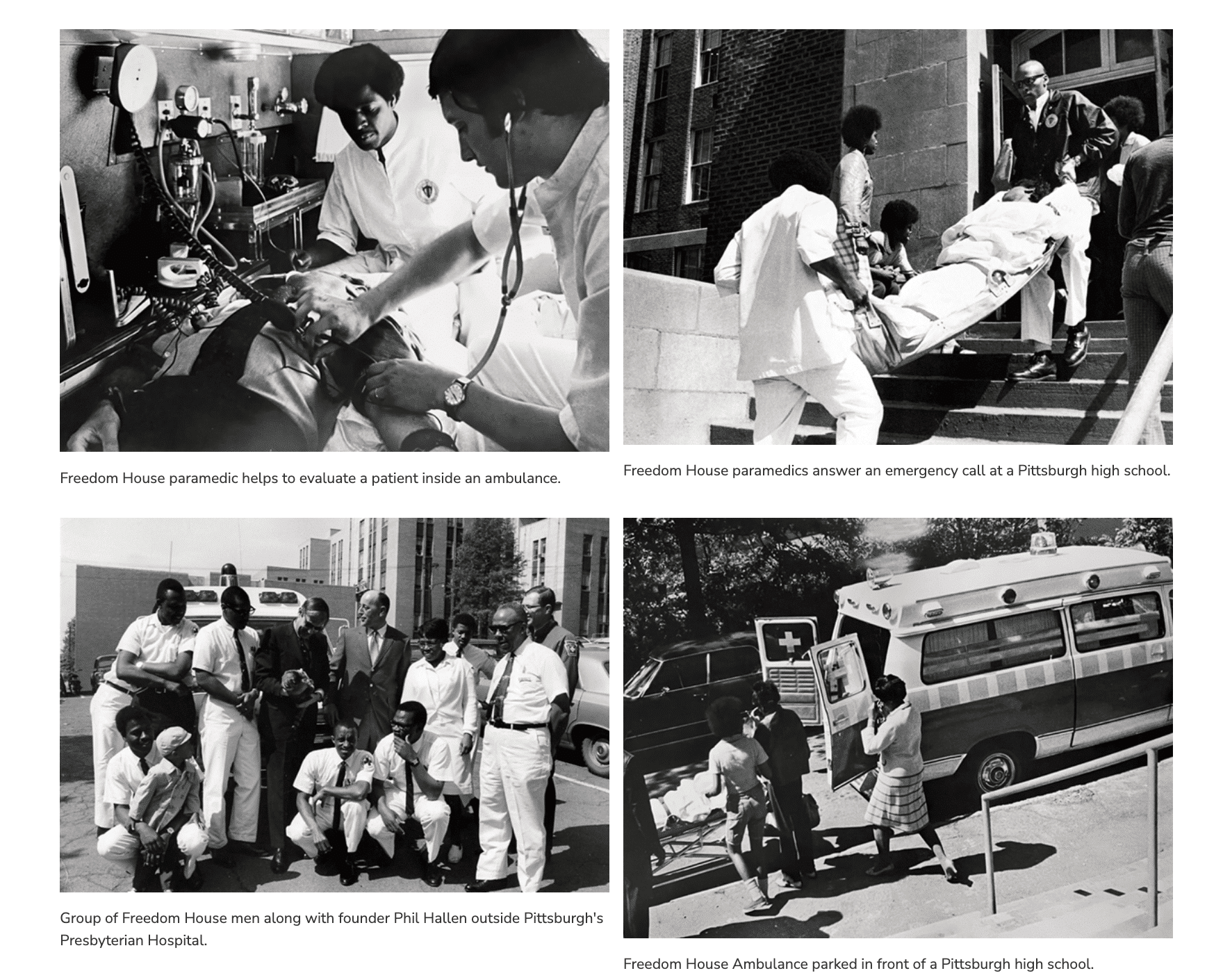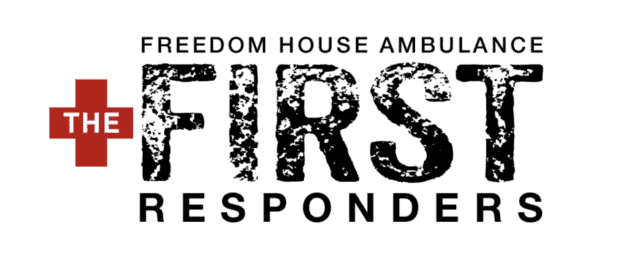
Watch the documentary to learn why access to care and transportation justice are deeply interconnected
“Back in the 1960s, you stood a better chance of surviving a gunshot wound in Vietnam than you did in a car accident in the city of Pittsburgh.”
Freedom House Ambulance: The First Responders
That startling fact is how a recent WQED documentary Freedom House Ambulance: The First Responders begins. The documentary goes on to explain the need, the founding, the growth, the success, and systematic demise of the EMS response team that completely revolutionized how emergency services were trained and dispatched all over the world.
The Freedom House Ambulance was born out of a need for better medical care for the underserved community of Pittsburgh’s Hill District. Dr. Safar, who developed CPR, received a grant and worked with a team of other doctors to train unemployed and underemployed Black men and women in first aid, CPR, and other minor medical interventions so they could begin treating patients upon their arrival and keep them alive on their way to the hospital.
Why are we talking about this?
So why is BikePGH discussing a documentary about a paramedic service that was dissolved in the 1970’s? Well, first off, a few days ago it was International Paramedics Day, and we were thinking about it. Second off, we want to highlight the history of Freedom House because without their paramedics and ambulances, society suffered. Without them, those who needed immediate medical assistance had to rely on personal vehicles or having family and friends nearby with personal vehicles or sheer proximity to hospitals to determine your ability to survive an urgent but perhaps simple medical episode. Or, at the time, you had to call the police for transportation (to mixed and often unfortunate end results, i.e., racial profiling and discriminatory policing practices). All of these connected problems thus turns care into an access issue and a class issue and, ultimately, a transportation justice issue, which is directly related to BikePGH’s mission to improve our quality of life and reduce the harmful effects of car dependence in our communities.
From a zoomed out perspective, the Freedom House documentary calls to mind the fact that so many issues are deeply interrelated with transportation justice. For instance, when we talk about social equity, transportation plays a significant role in social equity and addressing disparities. Lack of adequate transportation options can lead to isolation of low-income individuals, Black and Brown communities, the elderly, and people with disabilities, from essential services like healthcare, education, and employment. This can deepen existing social inequalities and hinder social mobility. Also related are historical patterns of discrimination, such as redlining and segregation, have shaped transportation infrastructure and access. These discriminatory practices intentionally restricted access to transportation in minority communities, isolating them from economic opportunities and essential services in Pittsburgh and beyond.
In all, transportation access is deeply interrelated with key issues due to its fundamental role in shaping societies and individual well-being. Specifically, we’s also like to point out that the transportation justice at the core of BikePGH’s mission relates to community health, safety, and equity, so when we talk about these things, it’s for a good reason. And as a major theme you will notice in the Freedom House Ambulance documentary – the interconnectedness of these issues as pertaining to the safe transportation and care of the sick and wounded – you can bet that this one is definitely worth the watch.
Watch the Documentary

The Freedom House team of men and women completely transformed the field of emergency medicine. The model they created was replicated all over the country and, eventually, all over the world as the best practices. It’s the basis for the city-run ambulance services today. And the documentary lets us hear from the people who made their neighborhood safer, those who were on the team themselves.
Watch the WQED documentary Freedom House Ambulance the First Responders here